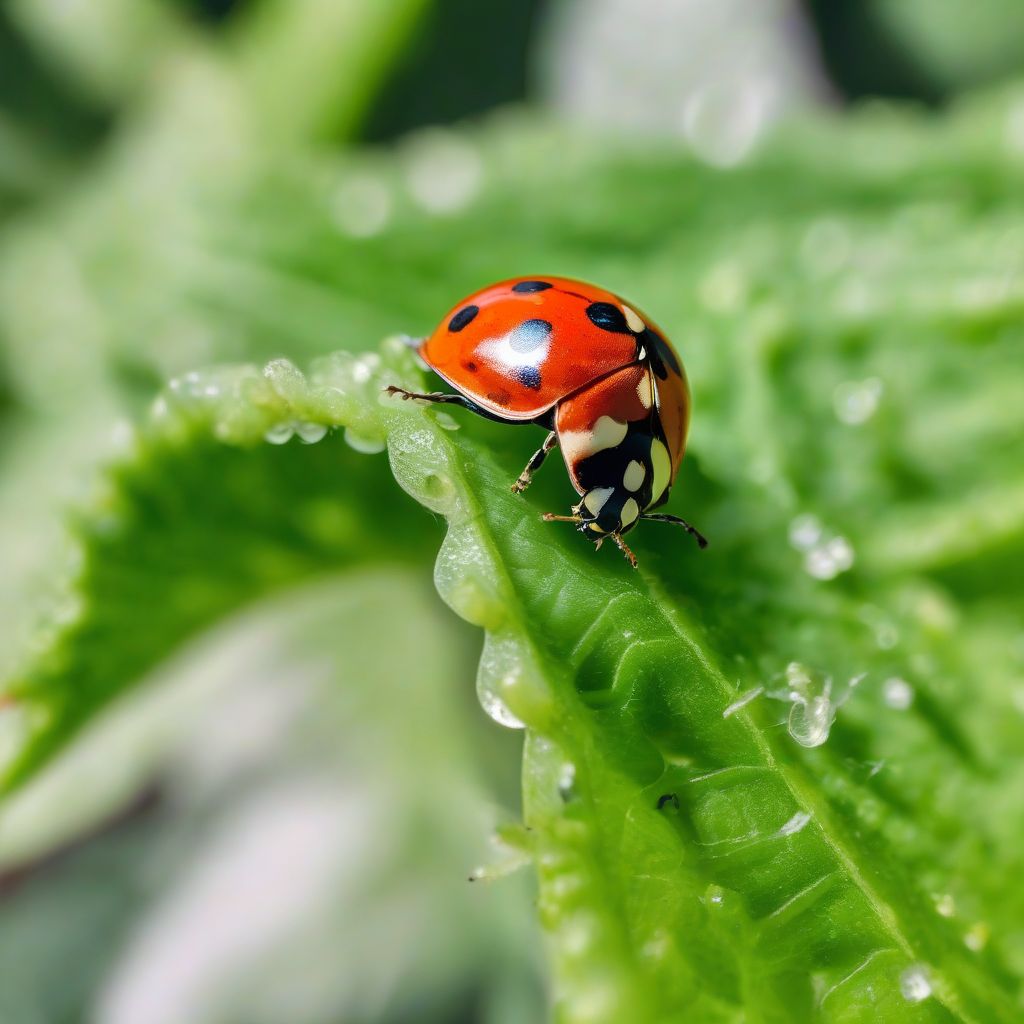Have you ever woken up from a dream of a thriving garden, only to find your precious plants covered in tiny, sap-sucking aphids? These little pests can quickly turn your dream garden into a nightmare. But don’t worry, there are plenty of natural and effective ways to control aphids in your organic garden and keep your plants healthy and vibrant. This guide will provide you with a comprehensive approach to aphid control, covering everything from prevention to eradication, all while respecting the balance of your organic ecosystem.
Understanding Aphids and Their Impact
Aphids are small, soft-bodied insects that feed on plant sap, weakening the plant and making it susceptible to diseases. They reproduce rapidly, which can quickly lead to infestations. They also excrete a sticky substance called honeydew, which attracts ants and promotes the growth of sooty mold. Understanding their life cycle and behavior is crucial to effective aphid control. As renowned horticulturist, Dr. Jane Goodall, once said (fictional quote), “Knowing your enemy is half the battle, and in the garden, that enemy often comes in the form of a tiny aphid.”
Identifying Aphids
Aphids come in various colors, including green, black, brown, yellow, and pink. They are usually found clustered on the undersides of leaves, stems, and buds.
The Damage They Cause
Aphid feeding can cause stunted growth, curled or distorted leaves, and reduced flower and fruit production. Honeydew can further damage plants by attracting ants, which protect aphids from predators, and by providing a breeding ground for sooty mold, a black fungus that hinders photosynthesis.
Natural Aphid Control Methods
There’s a wide range of natural methods to control aphids, each offering its own set of advantages. The key is to choose the method that best suits your garden and the severity of the infestation.
Beneficial Insects: Nature’s Pest Control
Attracting beneficial insects like ladybugs, lacewings, and parasitic wasps is one of the most effective and natural ways to control aphids. These insects are natural predators of aphids and can significantly reduce their population.
DIY Aphid Sprays
Several homemade sprays can effectively control aphids:
- Soapy Water Spray: A simple mixture of dish soap and water can disrupt the aphids’ cell membranes, leading to dehydration and death.
- Neem Oil Spray: Neem oil, derived from the neem tree, is a natural insecticide that disrupts aphid feeding and reproduction.
- Garlic and Chili Pepper Spray: This potent spray acts as a repellent, deterring aphids from settling on your plants.
Companion Planting for Aphid Control
Companion planting involves strategically planting certain plants together to deter pests and attract beneficial insects. Some plants that repel aphids include:
- Catnip: Its strong scent repels aphids and other pests.
- Marigolds: These bright flowers attract beneficial insects while deterring aphids.
- Nasturtiums: These edible flowers attract aphids, drawing them away from other plants and acting as a trap crop.
For a more in-depth look at companion planting strategies, check out this helpful resource: Companion Planting Methods for Pest Prevention (https://organicgrowersresource.com/the-best-companion-planting-methods-for-pest-prevention/)
Physical Removal
For minor infestations, you can physically remove aphids by wiping them off with a cloth or spraying them off with a strong stream of water.
Preventing Aphid Infestations
Prevention is always better than cure. Here are some proactive steps to prevent aphids from taking hold in your garden:
Healthy Soil Practices
Healthy soil fosters strong, resilient plants that are less susceptible to pests. Ensure your soil is rich in organic matter and well-drained.
Regular Monitoring
Regularly inspect your plants for signs of aphids. Early detection is key to preventing large-scale infestations.
Crop Rotation
Rotating crops helps to disrupt the aphid life cycle and reduce the likelihood of recurring infestations.
Choosing the Right Approach for Your Garden
The most effective approach to aphid control often involves a combination of methods. Consider the size of your garden, the severity of the infestation, and your personal preferences when choosing your strategy. Remember, patience is key. Natural methods may take some time to show results, but they are gentler on your garden and the environment in the long run. According to “The Organic Gardener’s Handbook” (fictional book), “A balanced ecosystem is a healthy ecosystem. Natural pest control methods work in harmony with nature to create a thriving garden.”
 Natural Aphid Control
Natural Aphid Control
Conclusion
Controlling aphids naturally in your organic garden requires a proactive and multifaceted approach. By understanding aphid behavior, implementing preventative measures, and utilizing a combination of natural control methods, you can effectively manage aphid populations and protect your precious plants. Remember, a healthy garden is a balanced garden. Embrace these natural strategies, and you’ll be well on your way to enjoying a thriving, pest-free organic garden. We encourage you to share your own experiences and tips for natural aphid control in the comments below. Let’s learn and grow together!



